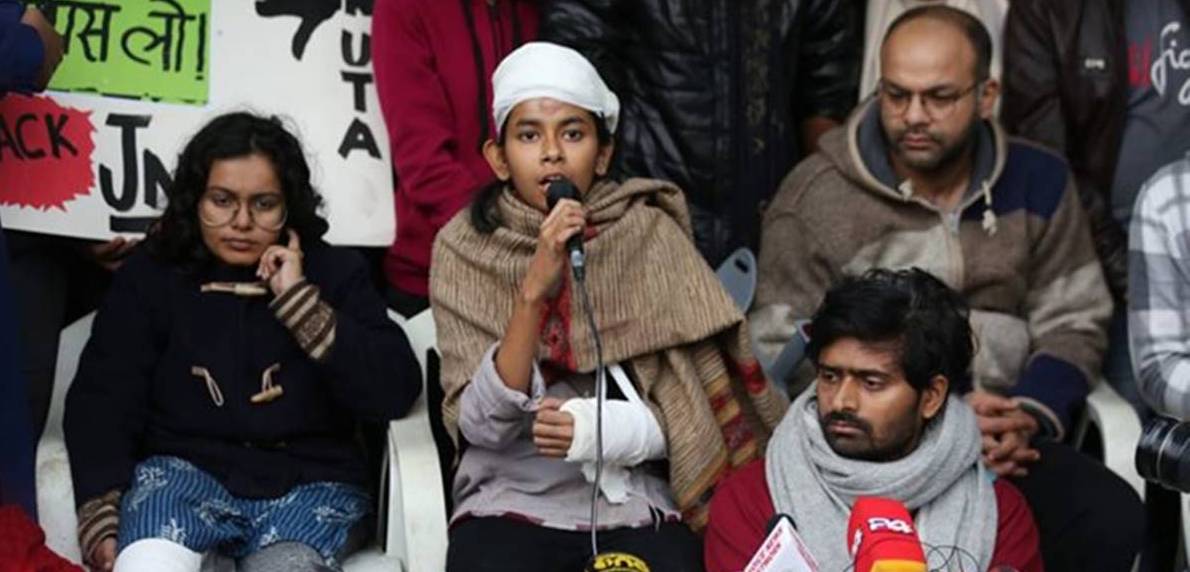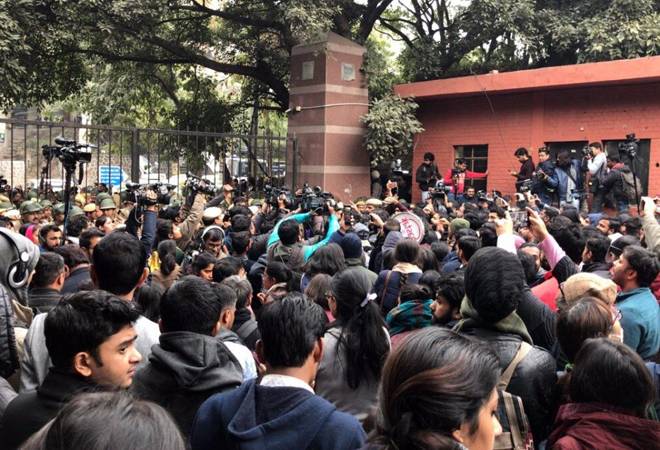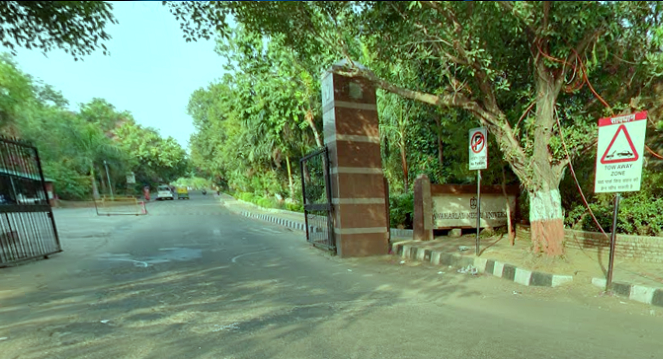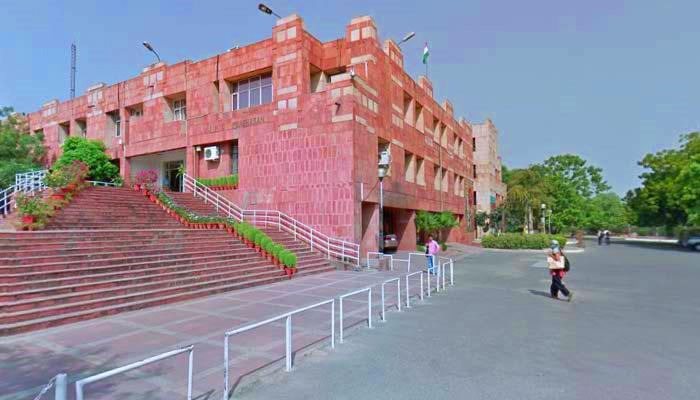PEDAGOGIC SENSIBILITIES
As the JNU intends to introduce online entrance tests, The New Leam with its pedagogic sensibilities questions this move.
The New Leam Staff
This time the JNU administration—known for all sorts of controversial decisions—is thinking of conducting online entrance tests for its diverse educational programs.

This is sheer madness for three reasons. First, online entrance tests imply a pattern of examination characterized by what is popularly known as MCQ—multiple choice questions. Even though it may be in tune with disciplines like Physics, Mathematics or even Economics, it is absurd as far as humanities and social sciences are concerned. Anyone seriously involved with the disciplines like history, philosophy, sociology and literature would accept that, particularly at a higher level of learning, the students require three inter-related qualities or ‘skills’—(a) the ability to think, reflect and engage with a spectrum of conflicting paradigms and discourses; (b) the willingness to go deeper into the intricacies of original texts; and (c) the creative ability to articulate the nuanced argumentations and debates.
However, it is impossible to evaluate these required qualities through the instantaneity of MCQ. Take a living illustration. A typical MCQ puzzle can be like this:
Karl Marx gave the idea of ‘alienation’ in
(a) The Poverty of Philosophy
(b) The German Ideology
(c) Economic and Philosophic Manuscripts of 1844
(d) Capital, Vol 1
Well, it is possible for one to give the ‘correct’ answer by choosing the option (c). However, anyone well versed with the stuff like Wikepedia or mass circulated guide books can know this information. This does by no means evaluate what a serious student of sociology/political science ought to be endowed with. Now think of yet another question—the much condemned ‘essay ‘type ‘subjective’ question.
Is there any similarity between young Marx’s theory of ‘alienation’ and ‘mature’ Marx’s elaboration of ‘commodity fetishism’?
In order to answer to the question, one needs to have a deeper understanding of the Marxian theory, and its evolution. And this is what is essentially required for doing well in humanities and social sciences.
Second, it is often argued that in this kind of public examinations, because of the huge number of applicants, ‘online/MCQ’ form is the best option; it saves time and money; and it leads to instant elimination and selection. Apparently, in a society like ours that cherishes ‘technological solutions’ to everything, an argument of this kind is tempting; it attracts academic bureaucrats and officials and possibly some teachers who do not want to ‘waste’ time in the ‘nasty’ process of evaluating ‘subjective’ lengthy essays. However, the subtle domain of education has to be seen beyond the techno-managerial logic of time management and ‘instant/objective’ evaluation. Moreover, if you think of the specificity of JNU, not more than 3000 students from all over the country write for, say, MA entrance test in sociology or political science.
And each of these centres has not less than twenty faculties. Why should it be impossible for them to evaluate the copies? Don’t they keep reading the tutorial assignments, term papers and ‘essay type’ end semester exam papers? Does it indicate that one day the administration would think about ‘online’ end semester exams with ‘objective’ multiple choice questions free from caste/gender/ racial ‘biases’? Who knows this sort of anti-pedagogic absurdity can be justified in the name of ‘political correctness’?
Third, let the administration realize that the ‘subjectivity’ of an argumentative discourse, for humanities and social sciences, is preferable to the ‘objectivity’ of discrete facts. Even if mathematicians are certain that 2+2=4, a student of literature can never be certain whether T.S. Eliot is a better poet than Jibananda Das; or for that matter, a great professor of sociology can never tell his students that Marx has said everything about capitalism, and hence Weber’s understanding of capitalism is wrong—the way 2+2=3 is wrong. The beauty of these disciplines is precisely this aesthetic play with subjectivities and differences.
The moment one seeks to reduce it into a tight/objective formula, the spirit is lost. It is the beginning of the cultivation of totalitarian thinking—an environment conducive to soulless standardization and mediocrity.
However, who would educate the JNU administration?













